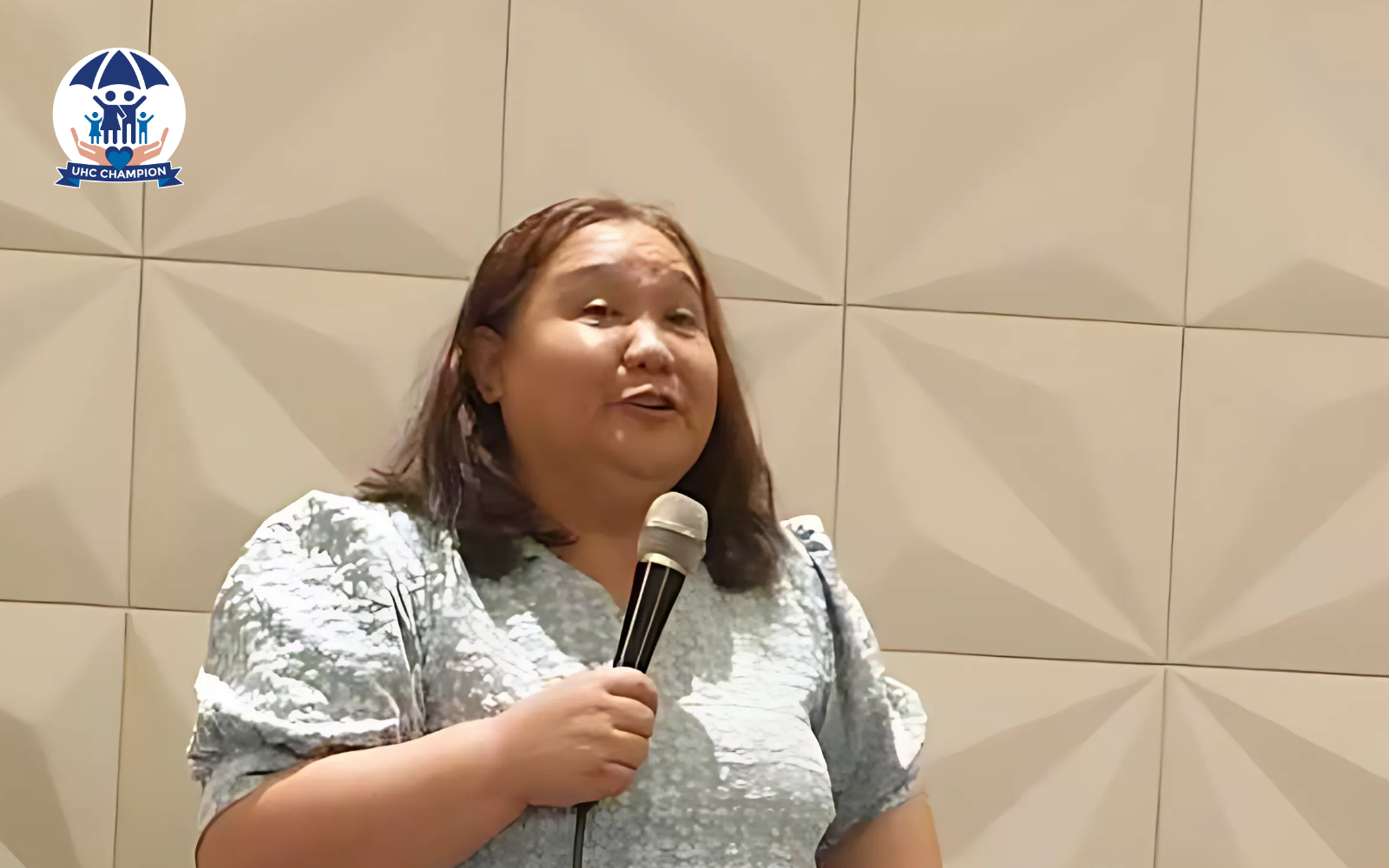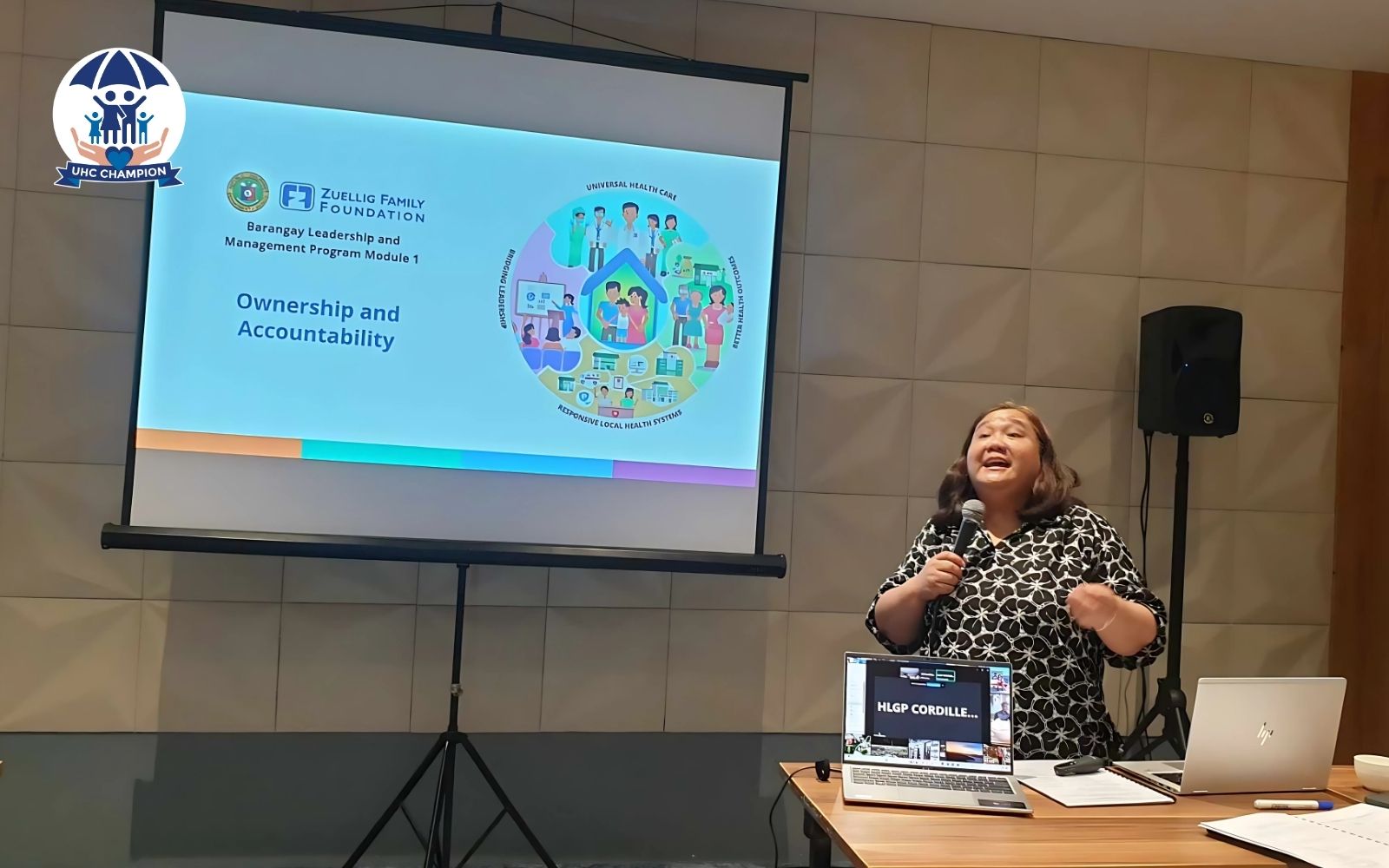Health Leadership in Action: Dr. Hydee Salao’s UHC Success in CAR
Stories

Dr. Hydee Salao’s public health career began when she was a Medical Officer at Barlig District Hospital in the Mountain Province, but it was her role as a Municipal Health Officer (MHO) at the Rural Health Unit of Barlig that truly exposed her to the harsh realities of public health.
The lack of access in Geographically Isolated and Disadvantaged Areas (GIDA), where patients often arrived late for treatment due to the long distances they had to travel, and the lack of funds to fulfill their healthcare needs was starkly evident. “Most patients would have common illnesses; however, because of the lack of funds or health facilities, when they get to the district hospital, their condition becomes worse,” Dr. Salao shares. The consumption of alcohol leading to lifestyle diseases was particularly prevalent. As one of the few doctors in the area, she had to rely on her skills and ingenuity to provide care, often facing the challenge of stabilizing patients and referring them to higher-level facilities due to limited resources.
Dr. Salao took the post of MHO briefly, where she faced the daunting task of managing the rural health unit with a meager budget of only Php 10,000. This experience underscored the need for sufficient funding and resources to deliver adequate healthcare services. She recalls, “I would often wonder how I could convince the patients and their families to bring the patient to a higher-level facility when they were limited in terms of resources. At times, I would find a way to transfer the patients.”
Lessons from Stakeholder Engagement
The transition from MHO to adjunct faculty, working alongside development partners, allowed her to gain valuable lessons in working with local chief executives on health leadership and governance. Later, her work with the regional DOH equipped her with a diverse skill set and a deep understanding of health disparities, fueling her passion for addressing them.
As an adjunct faculty member during the Municipal Leadership and Governance Program (MLGP), her experience and insights proved invaluable in her work. Focused on improving health indicators at the municipal level through engaged local stakeholders, the MLGP showcased her foresight and commitment to empowering local government units (LGUs). She spearheaded programs offering leadership development at all levels, from regional to barangay, ensuring a holistic approach that involved all stakeholders, including finance officers and local legislators.
Making a Universal Impact
With the passage of the UHC law, a comprehensive healthcare reform that provides healthcare access and inclusion in PhilHealth for all Filipinos regardless of financial capabilities, Dr. Salao was assigned as the UHC Coordinator for the Cordillera Administrative Region (CAR). Her dedication to this cause was unwavering. Her experience came into play as she took on facilitating UHC implementation in the region.
“The whole concept of UHC is the most challenging,” Dr. Salao states. “How do we convince crucial stakeholders to accept the implementation? How do we make them feel ownership in implementing the UHC? Quality health service delivery means strengthening healthcare facilities, which is crucial to bringing UHC to fruition.”
One of Dr. Salao’s notable achievements was the successful integration of UHC in CAR. Her approach involved building relationships with provincial leaders, understanding their unique leadership styles, and empowering Provincial Health Team Leaders (PHTLs) to serve as technical experts and coaches. This strategy fostered collaboration and trust, leading to a more effective implementation of UHC initiatives.
The UHC law has significantly impacted healthcare in CAR, improving access to services and reducing financial barriers. Under Dr. Salao’s guidance, the region witnessed tangible improvements in healthcare delivery. She emphasized the importance of data-driven decision-making and the need to understand the unique challenges of LGUs. This approach has led to more effective and efficient healthcare in the region.

Fundamental Lessons in Change Management
Effective change management requires being grounded. Regional leaders must listen to those on the ground to create responsive programs, ensuring co-ownership and success. This approach was evident in the Bayang Malusog Leadership Development Program (LDP) of the Zuellig Family Foundation (ZFF). This program focuses on health financing and primary care. Voluntary participation led to high engagement, addressing knowledge gaps in these areas and improving healthcare delivery in the Cordillera region.
Strengthening internal capacities by harmonizing UHC interventions and team-based provincial monitoring proved effective. Continuous learning and content mastery are crucial for providing better technical assistance. Dr. Salao and her team revisited UHC policies and other regions’ experiences to redesign their technical assistance for better responsiveness.
Through the Bayang Malusog program, regional leaders and PHTLs gained a better orientation on UHC, enabling them to understand their roles in its implementation. The program has significantly impacted healthcare in the region, improving health financing and primary care.
During the Provincial Leadership Development Program (PLDP) and technical sessions, onboarding accountants and non-health members ensured comprehensive participation and understanding. This program has been instrumental in building the capacity of local health leaders and improving healthcare delivery in the region.
Dr. Salao’s leadership is most evident in her willingness to address her team’s synergy challenges. Despite their high productivity and efficiency, trust among team members needed to be built. She saw the need for staff development and fostering a growth mindset, even though most health workers are job order employees rather than permanent hires. Dr. Salao took it upon herself to train and coach her team, encouraging division chiefs to do the same, empowering their staff by entrusting them with responsibilities.
Finding Purpose as a True UHC Champion
Dr. Hydee Salao’s contributions to healthcare in the Philippines, particularly in facilitating UHC implementation in CAR, have been transformative. Her dedication to improving health systems, innovative approach to leadership development, and ability to foster collaboration among stakeholders have made her a true champion of universal healthcare. With continued support from partners like ZFF, Dr. Salao’s vision of accessible and quality healthcare for all Filipinos is a promising reality. She continues to serve not just in her capacity as UHC Coordinator, but as an inspiration for all healthcare professionals. She says, “I realized that we have a huge responsibility to the public; we want everyone to benefit from healthcare and improve their lives. Little by little, one by one, people are being convinced to join the cause.”